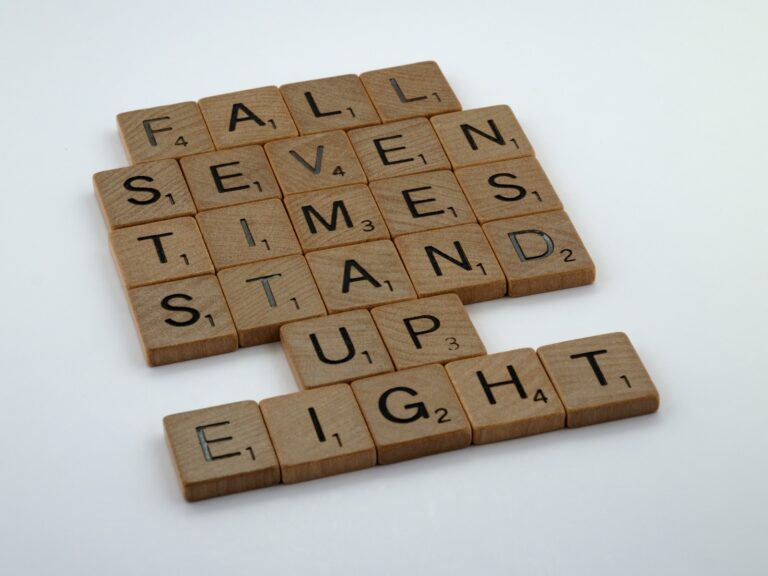The Inevitability of Rejection: Why It Happens to Everyone
Rejection is an inevitable part of life, and it can come in all shapes and sizes. We experience rejection in our personal lives, such as a romantic interest turning us down, or professionally when we don’t get the job we wanted.
It’s a common experience that we all go through at some point in our lives. It’s essential to understand that rejection isn’t always about us personally.
Sometimes it has nothing to do with our abilities or personality, but rather the circumstances surrounding the situation. For example, if you didn’t get hired for a job you applied for, it could be because someone else had more experience or qualifications than you did – not because there was anything wrong with you personally.
The Importance of Not Taking It Personally: How Rejection Affects Us
One of the most difficult aspects of rejection is not taking it personally. It’s easy to feel like we’re being rejected because there’s something wrong with us.
But often this isn’t the case at all – and even if it is, it doesn’t mean that we are undeserving or unlovable. Taking rejection personally can have negative effects on our mental health and well-being.
If we allow rejection to define who we are as people, it can lead to feelings of low self-esteem, worthlessness and even depression. That’s why it is so important not to take rejection too seriously and learn how to move on gracefully from those experiences.
While experiencing rejection may be uncomfortable or painful at times – remember that everyone goes through this at some point in their lives too – even your role models! The key takeaway here is learning how not take things too personally – after all – rejections don’t define your worth as a person!
Understanding Rejection
Different Types of Rejection
Rejection can come in different forms, and it’s important to understand that not all rejections are the same. For instance, sometimes we may experience rejection in our personal relationships, such as when a romantic interest doesn’t reciprocate our feelings or when a friend decides to end the friendship. Alternatively, we may experience professional rejection, such as when we don’t get a job we applied for or when our work is rejected by a publisher.
Furthermore, there are different degrees of rejection. Some rejections may be relatively minor, such as when someone declines an invitation to hang out with us.
Others can be much more significant and have long-lasting consequences. Regardless of the type or degree of rejection we experience, it’s essential to remember that it’s never easy and that everyone processes it differently.
Reasons for Rejection
Understanding the reasons behind why we’re being rejected can help us cope with the situation better. In some cases, the reasons may be clear-cut and easy to understand; for example, if we didn’t get hired for a job because we lacked certain qualifications or skills required for the position.
Other times, however, the reasons may be less clear or even seem unfair. For example, if a writer receives a rejection letter from an editor without any feedback on how they could improve their work.
In those instances where there isn’t any feedback or explanation given about why something was rejected can leave us feeling confused and frustrated. However, it’s important to keep in mind that sometimes rejection has nothing to do with us personally.
External factors beyond our control can also affect outcomes. Understanding this concept is key because it helps keep things in perspective and prevents us from blaming ourselves excessively where there isn’t any need for self-blame!
Coping with rejection
Give yourself time to process
Rejection can be tough to handle, especially if it’s something you were invested in. It’s important to give yourself time to process the emotions that come along with it.
It’s okay to feel sad, disappointed, or even angry. Don’t try to suppress these feelings or pretend like they don’t exist.
Instead, allow yourself time and space to work through them. You may find that journaling helps you process your emotions or perhaps going for a long walk in nature.
Whatever it is, make sure you take the time you need without rushing the healing process. While it may feel uncomfortable at first, allowing yourself to feel and work through the pain of rejection will help you grow emotionally and become more resilient in the face of future setbacks.
Don’t dwell on it too long
While it’s important to allow yourself time to process your emotions after experiencing rejection, it’s equally important not to dwell on them for too long. Ruminating on negative thoughts and emotions can lead to a cycle of depression and anxiety that can be difficult to break out of.
Instead, set limits for how long you allow yourself to think about what happened before moving on. You could try setting aside 20-30 minutes per day dedicated solely for processing your feelings regarding the rejection while using distractions like a hobby or exercise during other parts of the day when those negative thoughts try creeping back in.
Seek support from loved ones
When we experience rejection we might feel alone but remember that everyone has experienced some form of rejection throughout their lives. Seeking support from loved ones is an excellent way not only get an outside perspective but also emotional support so as not go through this alone. Reach out either by phone/video call or text message as a simple “Hey I’m struggling right now, can we talk?” can go a long way.
Sharing your feelings with a trusted friend or family member can also help you gain insights into the situation and may help you see it from a different perspective. Remember that people who love and care about you always want to help and support you through tough times so don’t be afraid to reach out.
Moving on Gracefully
Reframe Your Mindset
One of the most important things you can do to move on from rejection is to reframe your mindset. Instead of dwelling on what went wrong or beating yourself up over it, try to see rejection as an opportunity for growth. Look at it as a chance to learn and improve yourself.
This can be a difficult process, but with practice, you can turn even the most painful rejections into a positive experience. An effective way to reframe your mindset is by practicing gratitude.
Make a list of all the things in your life that you’re thankful for. Focusing on what you have rather than what you’ve lost can help shift your perspective and keep you moving forward.
Learn from the Experience
Rejection is never easy, but it’s important not to let it discourage you. One of the best ways to move on gracefully is by learning from the experience. Ask yourself why you were rejected and what you could do differently next time.
For instance, if you were turned down for a job, take some time to reflect on your application and interview process. Did you adequately prepare for the interview?
Was there anything in particular that may have turned off the hiring manager? By examining these questions honestly and openly, you’ll be better equipped to succeed in future endeavors.
Keep Trying and Don’t Give Up
One of the keys to moving on gracefully after rejection is simply not giving up. It’s natural to feel defeated after being rejected repeatedly, but it’s important not to lose hope.
Instead of giving up altogether, consider pivoting slightly or trying new approaches until something clicks. If one avenue didn’t work out for whatever reason – whether it was personal or professional – then try another!
The key here isn’t necessarily success at first attempt; it’s the willingness to keep trying and not giving up. After all, it only takes one yes to change everything.
Tips for avoiding taking rejection personally
Separate your self-worth from the outcome
One of the main reasons why rejection can hurt so much is that we often tie our self-worth to the outcome of a particular situation. When we receive a rejection, it can feel like a personal attack on us as individuals.
To avoid this, try separating yourself from the situation entirely. Remember that just because something didn’t work out this time doesn’t mean there’s anything wrong with you.
It simply means that this particular thing wasn’t meant to be. One way to do this is by focusing on your strengths and achievements outside of the situation in question.
Make a list of all your accomplishments, things you’re good at, and positive traits you possess. By reminding yourself of all the great things about you, it will be easier to see that one rejection doesn’t define who you are as a person.
Focus on what you can control
When we receive a rejection, it’s easy to get caught up in all the things that were out of our control – maybe it was bad timing or someone else was just more qualified for the job. But fixating on these factors will only make us feel worse about ourselves.
Instead, focus on what you can control: your attitude and your actions. For example, if you applied for a job and didn’t get it, take inventory of what skills or experiences you might be lacking and work on improving them for next time.
Or if someone rejects an idea you presented at work, ask for feedback and use it as an opportunity to grow and learn how to better communicate your ideas in the future. By staying focused on what’s within our power, we can maintain agency over our own lives instead of feeling helpless in the face of rejection.
Practice self-care and self-love
Rejection can be emotionally exhausting, so it’s important to prioritize self-care during this time. Make sure you’re getting enough sleep, eating well, and taking care of your physical health. Exercise can be especially helpful in reducing stress and anxiety.
Additionally, make time for activities that bring you joy and help you feel good about yourself. Whether it’s spending time with loved ones or pursuing a hobby, these positive experiences can remind us of our worth beyond any rejection we may face.
Practice self-love by being kind and compassionate toward yourself. Treat yourself the way you would treat a friend who was going through a hard time.
Speak to yourself with love and encouragement rather than criticism or harsh judgment. By practicing self-care and self-love, we can build up our resilience in the face of rejection and learn to move on gracefully.
Conclusion
Rejection is a natural part of life, but it doesn’t define you.
Rejection is not easy to take. Even the most successful people in the world have experienced it. However, the key to not letting rejection get the best of you is to understand that it’s a natural part of life.
It doesn’t mean that you’re not good enough or that there’s something wrong with you. It simply means that at this particular moment in time, things didn’t work out as planned.
It’s important to remember that every rejection can be an opportunity for growth and improvement. Instead of dwelling on what went wrong, focus on what you can learn from the experience and how you can use it as a stepping stone for your future success.
Maybe there are some areas where you need to improve your skills or expertise, or perhaps there are some habits or behaviors that need to change. Every rejection gives you feedback that can help you become better equipped for future opportunities and challenges.
Use it as an opportunity to grow and improve yourself
Trying again after being rejected takes courage but can lead to success beyond what was imagined before. Therefore, instead of perceiving rejection as a failure or personal attack, learn from it and work towards growing from it.
One way to do this is by reframing your mindset: shift your focus from feeling inadequate and questioning worthiness towards understanding the value of persistence and self-improvement; with persistence comes growth and with growth comes success. : Rejections are hard but they don’t define us; they are just temporary setbacks on our journey towards who we want to become And if we use them wisely–if we learn from them–they can actually make us stronger than before with more tools under our belt for handling similar situations in the future!






